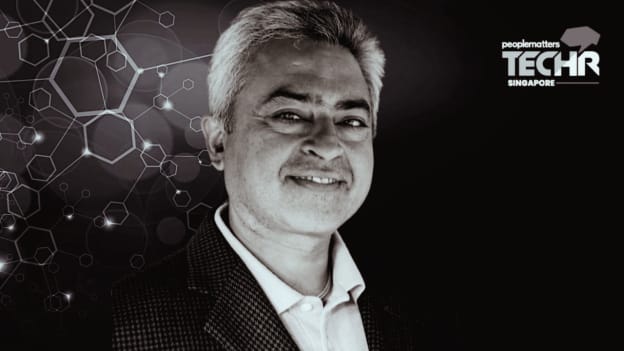Gear up for the era of quantum computing in human resource management

Human resources is the need of the hour in this rapidly changing world of work. The swift rise in various workplace models means greater reliance on smart and streamlined HR technologies. While we are still getting well-versed with artificial intelligence, machine learning, and web 3.0, the world is gearing up for quantum computing, a technology that defies logic!
Yes, quantum computing is still in the development stage, but sooner or later, quantum computing will fundamentally change HR and recruitment. If discussion about quantum computing feels like a quantum leap into a sci-fi realm to you, need not worry as Pravir Malik, Founder of QIQuantum, is here to enlighten you. During his keynote session at TechHR Singapore 2022, he explained how more computing power will redefine the future of work.
What is quantum computation?
We know that classical computers use binary numbers, zero and one, to crunch through operations. Quantum computers, on the other hand, use quantum (plural: quanta) bits. These bits act as the third state after zero and one, called superposition. Instead of analysing a one or a zero sequentially, superposition allows quanta to represent more than two scenarios at the same time.
“The easiest way to understand quantum computation is by thinking about macro life as it arises. Just like life in its structure of the cell, which comprises volumes of data, innovators seek possible solutions at the atomic and subatomic level in a field known as quantum computing,” explained Pravir Malik.
How quantum computing will evolve human resources?
One of the trickiest parts of being a hiring manager is using the right resource at the right place. What if we tell you that quantum computation can make this possible! When hiring a new resource, one can’t say for sure how that individual will perform in a particular team. He or she may enhance the overall team performance, might help an individual, or affect someone’s performance in a negative manner. So far, there is no algorithm to track this. But with the vast amounts of data on various traits, quantum computing might process all of this. Malik explained how this can be possible.
“Think about the periodic table just to draw an analogy. Organised as an S, P, D, and F shells, each element in these segments signify different sets of information. We find the same architecture also existing in quantum computing, showing that all quantum particles are structured into quarks, leptons, bosons, and Higgs bosons. Therefore this gives us a clue as to how to look at the quantum level and how to approach quantum computation,” said the founder of Qi Quantum.
Implications of quantum computation
Pravir Malik believes that with quantum computation, humans will break through existing technological barriers, further benefitting businesses. “Currently we are limited by the size of quantum computers because we are using manufactured qubits that tend to be unstable due to decoherence. However, in the not-so-distant future, we can create a computer that will be 100 per cent accurate and it will solve problems like difficult combinatorics, supply chain logistics, optimisation, data analysis, weather forecasting, and much more,” concluded Malik.
This year, People Matters hosted various sessions, where experts tackled present-day most pressing people and work dilemmas. After all, finding solutions was the top priority at the People Matters Tech HR Singapore 2022.
















